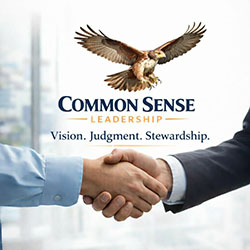
Yesterday on High Growth Business Report , we talked about building a stronger leadership culture by including emotional intelligence as part of your hiring process. I shared that I thought given the current rate of change you must hire people who bring complementary skills to your organization. I feel that the next generation of workers you bring into your organization are evaluating your leadership much more than past generations have done.
The next generation of entrepreneurs put a higher premium on who they invest their time with while working, developing, and growing, both personally and professionally.
This means that you must help your current leaders understand and develop emotional intelligence if you hope to attract the best and brightest to your organization. In the past, companies put together rigid hiring systems that removed many of these intangibles from the interview process. They standardized the process and left little flexibility in the way they hired workers. Though this filled the ranks quickly, employees didn’t feel a real connection to the organization. Many of the more innovative businesses have been able to attract and retain better team members to their organizations by placing a higher value on intangibles in the interview process. Today, we share some of those critical capabilities that should be evaluated during your interview process.
The first capability of emotional intelligence is self-awareness. This means that the best leaders have the ability to read people and situations, understand their own emotions and how they might be impacting their reactions in any given situation. Because they have mastered their own emotion, as they have a higher level of self confidence in dealing with challenging situations. This allows them to seize more opportunities and taker better risks because they know their own strengths and capabilities.
The second capability of emotional intelligence is self-management. Emotionally intelligent leaders are good managers of their time and efforts. They look at how to become more effective in their personal and professional lives. They have more disciplined personalities and tend to evaluate how to best optimize their talents and time.
These individuals are better at building trust with others both inside and outside their organizations. They show a higher level of conscientiousness when working with others on teams. They have an ability to work well with deadlines and understand how to motivate others to get things done on time and under budget.
They are more adaptable then most people, coming from a place of strength versus settling for less on any given project. If there are obstacles in the way, they are able to work around them or may remove them from the path of others to provide a wider range of solutions than more structured thinking might create. They tend to take the initiative when dealing with others by seizing opportunities when they become available to them.
These individuals still possess an achievement orientation. They expect to achieve excellent results and they often exceed them. They expect their leaders to provide a higher standard of excellence for their and their teammates’ results.
The third capability of emotional intelligence is social awareness. They seem to understand how to work with others in many different situations. This capability has three key components including empathy, organizational awareness, and service orientation. All three of these capabilities include an ability to look at situations and challenges from the other person’s point of view. Organizational awareness includes an ability to understand what is going on within the organization and which direction the organization needs to be moving towards. They tend to be more connected with more people, which permit them to excel in any given situation.
This capability also creates a serving orientation towards working with others. Many of these individuals see themselves as serving their customer needs thus providing a significant edge to their organization by building stronger connections to other people.
The final capability of emotional intelligence is a high level of social skills required to be a successful leader in rapidly changing times. This capability focuses on the ability to serve as a leader both inside and outside their organizations. These individuals feel called to be leaders and don’t reach their full potential unless their roles include these aspects of leadership.
In our next blog, we take a look at what skills are required to lead an organization to the next level of growth and prosperity. We also explore how you might be able to leverage these leadership capabilities to build a stronger organization moving forward.
See you at Market Leadership Journal at Can Leaders Build an Emotionally Intelligent Leadership Team?

